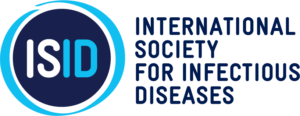SURVEILLANCE
Delivering curated, real-time, global disease detection. Trustworthy global surveillance data and authoritative analysis from global experts enabling accelerated infectious disease detection and response. ISID’s surveillance programs gather and share vital information and promote connections and dialogue amongst the international infectious disease community – free of political or commercial constraints.
Program for Monitoring Emerging Diseases (ProMED)
The Program for Monitoring Emerging Diseases – ProMED – is an is an internet-based reporting system dedicated to the rapid global dissemination of information on outbreaks of infectious diseases and acute exposures to toxins that affect human health, including those in animals and in plants grown for food or animal feed. Electronic communications enable ProMED to provide up-to-date and reliable news about threats to human, animal, and plant health around the world as quickly as possible.
By providing early warning of outbreaks of emerging and re-emerging diseases, public health precautions at all levels can be taken in a timely manner to prevent epidemic transmission and to save lives.
Mapping the Risk of International Infectious Disease Spread (MRIIDS)
ISID, along with ProMED, the Medical Research Council (MRC) Centre for Outbreak Analysis and Modeling at Imperial College London, the University of Sussex (UK), HealthMap at Boston Children’s Hospital/Harvard Medical School, and healthsites.io developed a user-friendly tool to both forecast case counts during infectious disease outbreaks and estimate the risk of infectious disease case importation/exportation in specific geographic areas. The project — Mapping the Risk of International Infectious Disease Spread — MRIIDS — assessed outbreak events reported on ProMED and HealthMap by combining multiple data streams into a single probabilistic framework. Disease outbreak information is assessed with automated intelligence capabilities that incorporate population density information to estimate the number of cases for specific outbreak events. Additionally, the algorithm provides a risk projection for case importation to specific countries and the risk of a country “exporting” cases. The information generated by the platform is hosted on a free, user-friendly website.
Developed based on data from the 2014-16 West Africa Ebola outbreak, the prototype was designed to be rapidly scalable by extending it to pathogens of significance to humans and animals on a global scale. The tool aims to inform key health decision-makers at national and regional levels of the risks of an outbreak spreading in real-time, and aids government and non-governmental decision-makers as they prepare for the possible importation of an infectious disease threat to their region.
In 2020, MRIIDS entered into the second phase of development with a $1.4-million grant from a philanthropic organization. MRIIDS 2.0 will build upon the success of the initial program and expand capabilities for infectious disease outbreak forecasting. The enhanced platform will incorporate new data streams such as personal mobility data, flight data, and new pathogens to improve the model’s applicability to new settings. The existing research team will continue their collaborations and the second phase of development will be completed in a two-year timeframe. As with the initial iteration, the updated platform will remain freely accessible to the public and all updates will be communicated on the program’s website.
